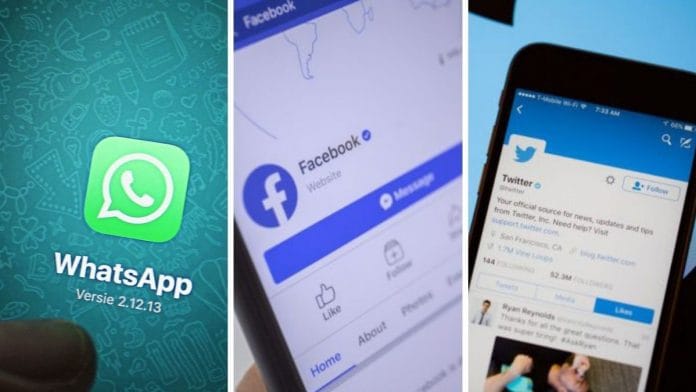Facebook-owned WhatsApp messaging platform moved the Delhi High Court last week against the traceability provision in the Information Technology (Intermediaries Guidelines and Digital Media Ethics Code) Rules 2021. Its petition argued that this provision violates the users’ right to privacy and freedom of speech under the Constitution, and falls foul of the Information Technology Act, 2000. Just two days before WhatsApp moved the court, the Delhi Police served a notice to Twitter, asking the social media company to explain why it labelled BJP spokesperson Sambit Patra and five other party leaders’ tweets as “manipulated media”.
These events are the latest in a series of tussles between the Narendra Modi government and social media intermediaries, with both sides claiming to bat for users’ rights. Earlier this month, the government asked WhatsApp to withdraw its privacy policy to respect users’ informational privacy and choice. In response, WhatsApp too invoked users’ rights and filed the aforementioned petition in the Delhi High Court. Similarly, a few months ago, the government directed Twitter to block accounts allegedly spreading misinformation on the farmers’ protests against the three farm laws. The social media company initially pushed back citing its commitment to users’ freedom of speech, although it later took down most accounts. In this tug-of-war between intermediaries and the State, the user is the ultimate loser. Both sides have sidelined users and arrogated to themselves the ability to represent their rights.
Various factors govern user rights
Users enjoy the right to privacy under the Constitution but their ability to exercise it is impinged on numerous reasons.
First, arbitrary platform policies, such as excessive data collection to identify activities of users, gives platforms enormous powers to dive deep into their behaviours. Users have been uncomfortable with such changes and had to take legal recourse. Earlier this year, petitions were filed before the Delhi High Court to direct WhatsApp to roll back its privacy policy update.
A second impediment is the misuse of rights by certain kinds of users (terrorists, child sexual abusers, religious extremists, etc.) which gives the government an opportunity to carve out exceptions to the rights. The government is justified to demand disclosure of private communication in specific cases. However, in reality, the grounds for such disclosures are so wide that they allow the State access to all kinds of communications. For example if the government cites the “maintenance of law and order” as a reason, there is nothing in the law to verify the legality of such a request and protect communications of civil and political activists, journalists, whistleblowers or even confidential business information.
Also read: New IT rules should use civil, not criminal penalties to make platforms more accountable
Why the users are ultimately at risk
The primary goal of the new Rules should have been to introduce strong protections for the users’ fundamental rights while addressing law and order concerns. A prudent way to do that would have been to allow the judiciary to screen such requests. Such a measure would have ensured that the executive didn’t concentrate all powers in its hands and avoid any potential misuse.
Users also stand to lose if intermediaries are vested with excessive discretion to decide what content can stay on their platforms, and what must be removed. The proviso to Rule 3(1)(d) of the IT Rules, 2021 allows intermediaries to remove or disable access to content on a voluntary basis on broad grounds — such as the content being “libellous”, “obscene”, or “patently false and untrue”. Content moderation is already fraught with the inconsistent application of “community guidelines”.
The Rules are likely to add to the confusion because they increase intermediaries’ scope to make determinations about content without offering sufficient clarity or redressal. This disempowers users by affecting their ability to understand or influence their terms of engagement with intermediaries. Had users been adequately consulted before the Rules were published, it may have been possible to engage more deeply with such issues. In the end, the failure to do so has led to the development of vague standards that leaves users worse off.
These recent developments underscore the need to tilt the balance of power in favour of the users again. For that to happen, the government must widen the ambit of public consultations while drafting rules that will govern platforms. On their part, social media intermediaries must ensure that their community standards and guidelines are transparent, and work to strengthen the rights of users. Else, the trust that users pose in the digital public sphere, where their rights can be preserved, will be broken forever.
The authors work at the Koan Advisory Group, a technology policy consulting firm. Views are personal.
This article is part of ThePrint-Koan Advisory series that analyses emerging policies, laws and regulations in India’s technology sector. Read all the articles here.
(Edited by Prashant Dixit)






